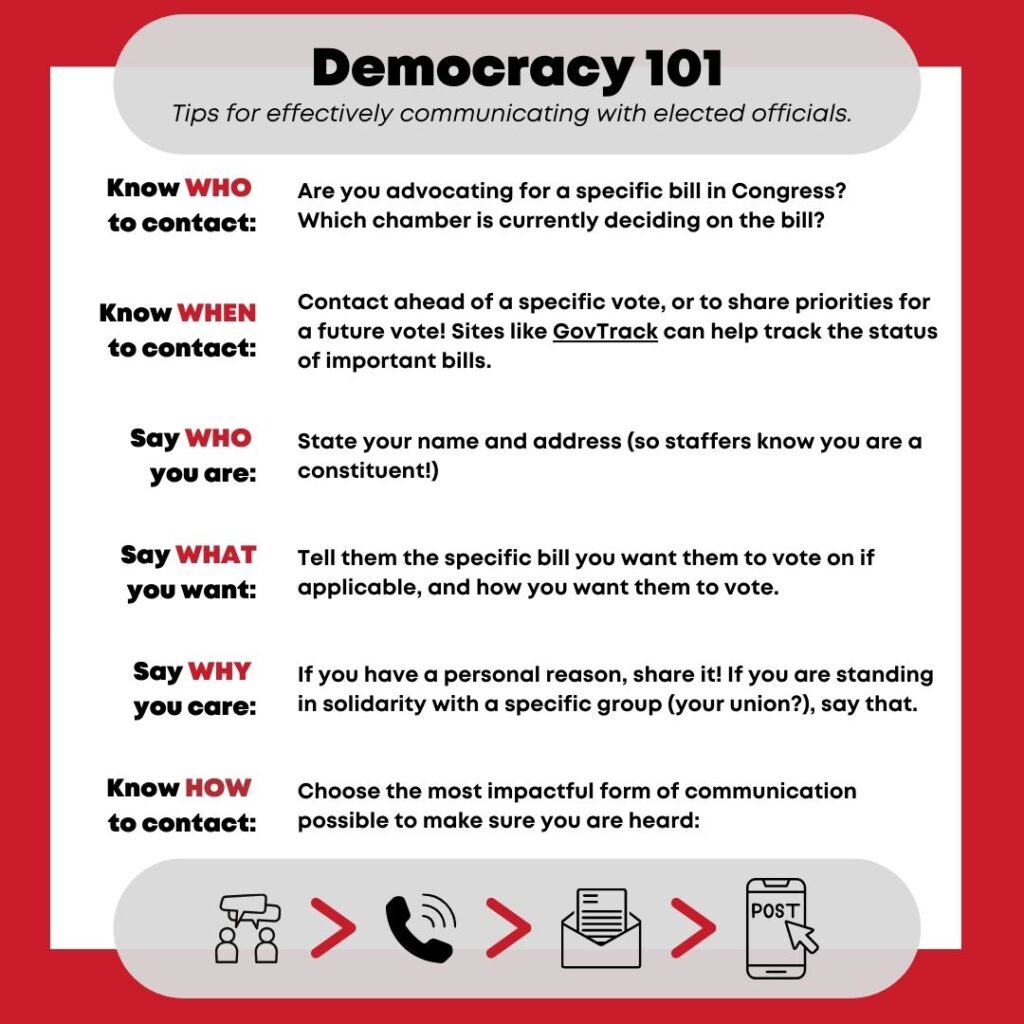Congress has entered its post-election session, often referred to as a “lame duck” period. While this questionable term suggests limited action, it’s a critical tie for politicians to tackle issues they avoided while on the campaign trail. With just a few weeks left of a relatively labor-friendly administration, now is the time for action!
Our national affiliate, NEA, has identified key labor priorities for this legislative session ahead of the January transfer of power. For SDEA members who care about these priorities, this is your moment to make sure your elected representatives hear your voice. Urge them to vote in a way that reflects your values, and our collective interests!
Identified NEA priorities & Actions:
Click Here for a living document with updated actions – things move fast when Congress is in session!
Tips for contacting representatives:
- Know WHO to contact: Are you advocating for a specific bill in Congress? Which chamber is currently deciding on the bill? (Does the specific bill name start with H.R. or S.?) Look up your Congressional representatives’ contact information here.
- Know WHEN to contact: Contact ahead of a specific vote, or to share priorities for a future vote! Sites like GovTrack can help track the status of important bills, and allow you to sign up for alerts.
- Say WHO you are: State your name and address (so staffers know you are a constituent!) Always contact your representative.
- Say WHAT you want: Tell them the specific bill you want them to vote on if applicable, and how you want them to vote.
- Say WHY you care: If you have a personal reason, share it! If you are standing in solidarity with a specific group (like in solidarity with other NEA educators), say that.
- Know HOW to contact: Choose the most impactful form of communication possible to make sure you are heard.
Bonus: Level up your advocacy
In any democracy, the most effective advocacy takes time and organizing! Elected representatives rely on their constituents to tell them what to focus on and prioritize, especially when lots of individuals and groups are vying for their attention. In general, the best ways to make your voice heard are (in order of effectiveness:)
- In-person visits
- Phone calls
- Personalized letters or emails
- Form letters / online petitions
- Strategic social media posts tagging your representative
- Social media posts on your private page that your rep will not see
Remember, the easier an action is to do, the easier it is to ignore! One way to amplify your individual voice is through solidarity, whether that is participating in a coordinated campaign (like the actions shared by NEA) or encouraging others to take action as well. That’s why signing petitions along with other union educators across the country can make a difference – but if you can pick up the phone and take a few moments to call your representative to share your priorities, that can be even more impactful. Read more about effective communication with representatives from RepresentUs.

Share
Blog
April 9, 2025
Know Your Rights & Know Your Vote: 2025 Post & Bid
We need to ratify an agreement to continue phasing out Fall "Excessing"! Read the full agreement: Ongoing Implementation of 2025 – 2026…
April 7, 2025
Budget Input Sessions
The SDEA Bylaws give members the opportunity to provide feedback on the SDEA Budget. There are two virtual budget input sessions scheduled…
April 2, 2025
The Standard: Switch Through April 30
SDEA members, are you already enrolled in The Standard? Your opportunity to switch to The Standard for your CTA-endorsed Disability is now…



